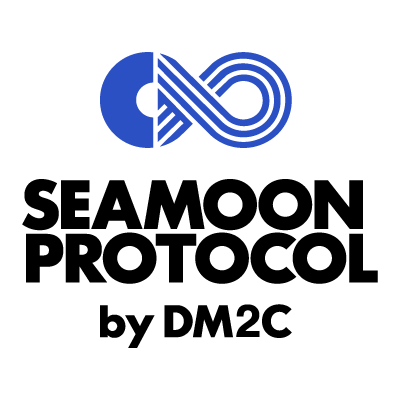Understanding Seamoon Protocol: Japanese conglomerate DMM Group creates an "immortal" Web3 Steam
Author: Coolman, Foresight News
With the rapid advancement of the digital content wave, the pace of industry iteration today far exceeds that of twenty years ago, especially in the gaming industry. Aside from a few veteran giants, the entire industry faces a sense of fragmentation and uncertainty. Meanwhile, the shift from single-player games to online platforms has led users to entrust all their game assets to centralized gaming platforms, which also means that once a platform disappears, all user investments will vanish without a trace.
The accelerated pace of iteration and gamers' nostalgia for the past have driven the demand for the permanence and accessibility of content. More and more projects are beginning to leverage the advantages of blockchain to address the issue of game transaction record traceability, while also enhancing game assets with more functionalities through NFTs, freeing themselves from dependence on centralized platforms. However, the high costs associated with decentralized data storage and the requirements for security and interoperability necessitate that users possess strong expertise.
Therefore, while the vision of achieving permanent storage and access to data through Web3 is appealing, there are indeed very few projects capable of overcoming the aforementioned challenges. Japan's comprehensive IT giant DMM Group can be considered one of the giants rising to the challenge, with its Web3-focused subsidiary DM2C Studio developing and operating the Seamoon Protocol (SMP), which aims to utilize Web3 technology to create sustainable game economic development and services, addressing the common challenges faced by the current Web3 and gaming industries—providing users with permanent and tamper-proof access to digital content, and leveraging DMM Group's long-accumulated resources to offer a secure, innovative, and open digital entertainment ecosystem to global users.
What is Seamoon Protocol?
In simple terms, Seamoon Protocol is a Web3 entertainment platform that aims to continuously build a globally representative application ecosystem for the Japanese entertainment industry. Seamoon is a combination of the characters "海月," resonating with the Japanese word "Kurage," inspired by "The supposedly immortal Turritopsis Jellyfish," symbolizing its sustainable construction in the Web3 ecosystem, akin to an immortal creature endlessly traversing the ocean.
Multi-chain Architecture + Cross-chain Interoperability
In its early stages, Seamoon Protocol can be understood as a distribution platform providing underlying interaction logic for gaming projects, choosing to build different use cases based on three distinct underlying structures: Ethereum, Oasys Hub, and DM2 Verse.
- Oasys Hub (Oasys Layer1) is a game-specific EVM-compatible Layer1, based on the Optimism architecture, capable of connecting multiple Layer2s simultaneously, allowing users to conduct gas-free high-speed transactions and providing cross-chain functionality, enabling asset transfers between major public chains for cross-chain interoperability.
- DM2 Verse (Oasys Layer2) is the native blockchain of SMP, allowing for direct, fast, and gas-free transactions with Oasys Hub. Additionally, users can "seamlessly" transfer NFTs on Verse to other chains for external market trading.
In addition to the underlying multi-chain structure for different use cases, SMP also plans to collaborate with the cross-chain interaction protocol LayerZero to achieve cross-chain interoperability. Therefore, unlike Web3 gaming platforms such as ImmutableX and Treasure, SMP is not limited to a specific ecosystem. Currently, two games are set to launch soon, and the SMP project token is expected to open for trading this summer, with multiple Web3 native games to be released continuously.
Team Background
The development and operation company behind Seamoon Protocol, DM2C Studio, is a Web3 subsidiary of DMM Group, one of Japan's largest comprehensive entertainment companies. As of January 2023, DMM Group has 60 businesses across 20 fields, including entertainment, gaming, finance, sports, and infrastructure, and has established an ecosystem involving numerous celebrities and creators.

DMM Group will bring a user base of 41 million and a strong brand reputation to Seamoon Protocol, aiming for large-scale Web3 adoption in Japan by converting its current user base. The multi-business layout of DMM Group's subsidiaries presents potential opportunities for future business collaborations with Seamoon Protocol. This includes, but is not limited to, DMM Games, which has developed popular games such as Touken Ranbu and has published Uma Musume in Japan, as well as DMM Bitcoin, a licensed exchange in Japan. In addition to its local resource advantages, Seamoon Protocol is also actively establishing strategic partnerships with overseas companies and investors to achieve global development and expand its new user base.
DM2C Studio Team Introduction
DM2C Studio currently has about 50 members dedicated to platform construction, GameFi development, and the development of other financial infrastructure and non-gaming services, directly managed by DMM Group CEO Keishi Kameyama.
DM2C Studio CEO Nagato Kasaki graduated from Keio University Graduate School, majoring in Policy and Media, and joined DMM Group in 2014, working on big data platform construction, distributed technology and blockchain technology research and development, as well as planning and building related business solutions. He has also authored several technical books on related topics. Since 2022, Kasaki has served as the core technology leader of DMM Group's Web3 department.
DM2C Studio Director Tatsuya Sato has 14 years of experience at the Japanese gaming giant Sega, participating in the development of various epoch-making games, including arcade games, online games, and card games. He later worked for 8 years at KDDI, a leading telecommunications company in Japan, and joined DMM in 2021, where he is responsible for strategic planning for GameFi projects and content and service layers.
Funding Situation
On December 20, 2023, DM2C Studio announced the completion of a strategic financing round of 340 million yen, led by Galaxy Interactive, one of the largest venture capital funds in the global entertainment sector, with participation from well-known Web3 VCs such as Shima Capital, Bitfinex, and Marblex. This marks DM2C Studio's first round of financing, aimed at establishing partnerships with leading projects in the global entertainment industry for global expansion.

DM2P Token Economic Model
Token Distribution
The total supply of Seamoon Protocol's native token DM2P is 10 billion, with only 20% of the tokens to be issued and released at TGE, and subsequent new token minting to be determined based on market demand.


It is worth noting that, unlike typical Web3 platform projects that rely on investors and private rounds for funding, Seamoon Protocol, backed by DMM Group, has chosen to allocate nearly 60% of its tokens for ecosystem incentives and retention, thereby attracting more users and developers to participate and establishing a more active ecosystem.
Token Use Cases
DM2P tokens will primarily be used for paying various platform fees and as incentives for holders.
In terms of payment, developers/publishers can use DM2P to pay for various feature fees provided by the platform, such as authentication, membership features, KYC, cross-chain bridges, customer support, analytics features, and financial service fees (loans, custody, etc.). Consumers/gamers can use DM2P to purchase premium memberships, upgrade wallets, limited edition NFTs, commemorative coins, and limited domain names.
Regarding holder incentives, developers/publishers and consumers/gamers can gain priority access to platform, financial services, and in-app features, as well as priority purchasing rights for limited NFTs and participation in various NFT voting by holding DM2P.
Ecosystem Development
Gaming Aspect
KANPANI☆GIRLS is a cross-platform idle game developed and operated by DMM Games. The game features a unique and interesting world view and was launched in 2014, achieving over 2.5 million downloads. KANPANI☆GIRLS RE:BLOOM is a Web3 game based on the world view of its predecessor, updating a large amount of storyline and new gameplay. The game is planned to open presale in Japan in July-August and officially launch.
DM2C has also reached a strategic cooperation with Thai game development company ROTJANA KAANKEM to release its developed game Kyrie & Terra on Seamoon Protocol. Kyrie & Terra is a turn-based RPG game, also featuring an ACG two-dimensional style, but it is more targeted towards Southeast Asian players. The game is expected to officially launch in July.
DeFi Aspect
While launching games, Seamoon Protocol also announced the creation of DeFi-related services to support and enhance the value of DM2P tokens, including liquidity pools and lending pools. In addition to the aforementioned consumption purposes, the project team plans to design related rights for token holders, including membership rights for SMP and its games, priority purchasing rights, and usage rights for some services from DMM Group's parent company. Holders can lend their tokens through lending services, effectively converting part of their rights into earnings.

Conclusion
Seamoon Protocol is committed to addressing the current challenges faced by the gaming industry through blockchain, providing users with lasting content access and empowering game assets. With the resources and experience behind DMM Group, as well as a deep understanding of the gaming and DeFi sectors, Seamoon Protocol may become an important part of the gaming industry and digital entertainment ecosystem. As more gaming projects and DeFi services are launched, we may look forward to Seamoon Protocol from the "two-dimensional kingdom" leading the gaming industry towards a more lasting and secure future.












